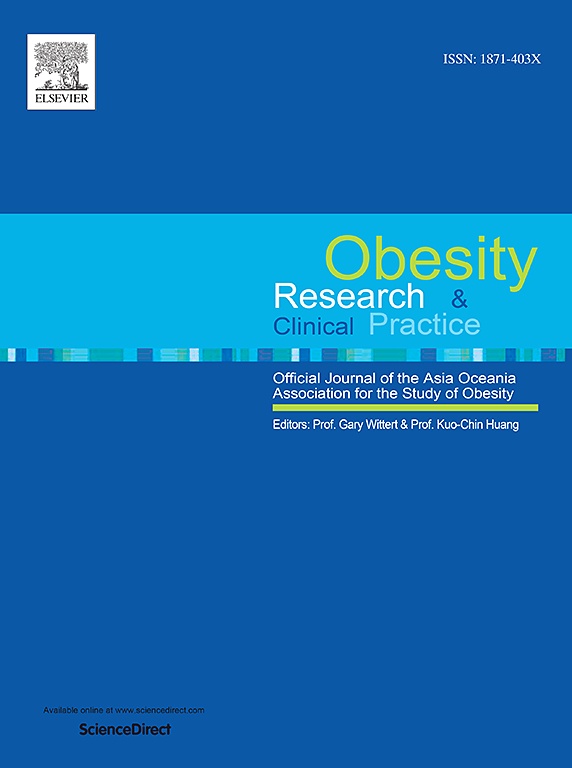减肥手术后神经性厌食症的新生。
IF 2.5
4区 医学
Q3 ENDOCRINOLOGY & METABOLISM
引用次数: 0
摘要
众所周知,代谢和减肥手术可以降低术后饮食失调的发生率。在相对罕见的情况下,饮食失调会在减肥手术后重新发生或复发,大多数情况下,体重下降不理想或体重进一步增加。本病例报告报告了一位56岁的女性,先前没有饮食失调的诊断,在减肥手术后出现神经性限制型厌食症,导致精神病院住院。对术前、随访和管理的精神病学筛查对外科决策的影响进行了回顾并提出了建议。本文章由计算机程序翻译,如有差异,请以英文原文为准。
De novo anorexia nervosa post-bariatric surgery
Metabolic and bariatric surgery is generally known to decrease rates of eating disorders post-procedure. In the relatively uncommon event that an eating disorder develops de novo or recurs after bariatric surgery, most cases are associated with suboptimal weight loss or further weight gain. This case report presents the history of a 56-year-old woman without a prior eating disorder diagnosis who developed anorexia nervosa restricting type after bariatric surgery, leading to psychiatric hospitalization. Implications for surgical decision-making in tandem with psychiatric screening pre-surgically, follow-up, and management are reviewed and recommendations made.
求助全文
通过发布文献求助,成功后即可免费获取论文全文。
去求助
来源期刊

Obesity research & clinical practice
医学-内分泌学与代谢
CiteScore
7.10
自引率
0.00%
发文量
80
审稿时长
49 days
期刊介绍:
The aim of Obesity Research & Clinical Practice (ORCP) is to publish high quality clinical and basic research relating to the epidemiology, mechanism, complications and treatment of obesity and the complication of obesity. Studies relating to the Asia Oceania region are particularly welcome, given the increasing burden of obesity in Asia Pacific, compounded by specific regional population-based and genetic issues, and the devastating personal and economic consequences. The journal aims to expose health care practitioners, clinical researchers, basic scientists, epidemiologists, and public health officials in the region to all areas of obesity research and practice. In addition to original research the ORCP publishes reviews, patient reports, short communications, and letters to the editor (including comments on published papers). The proceedings and abstracts of the Annual Meeting of the Asia Oceania Association for the Study of Obesity is published as a supplement each year.
 求助内容:
求助内容: 应助结果提醒方式:
应助结果提醒方式:


